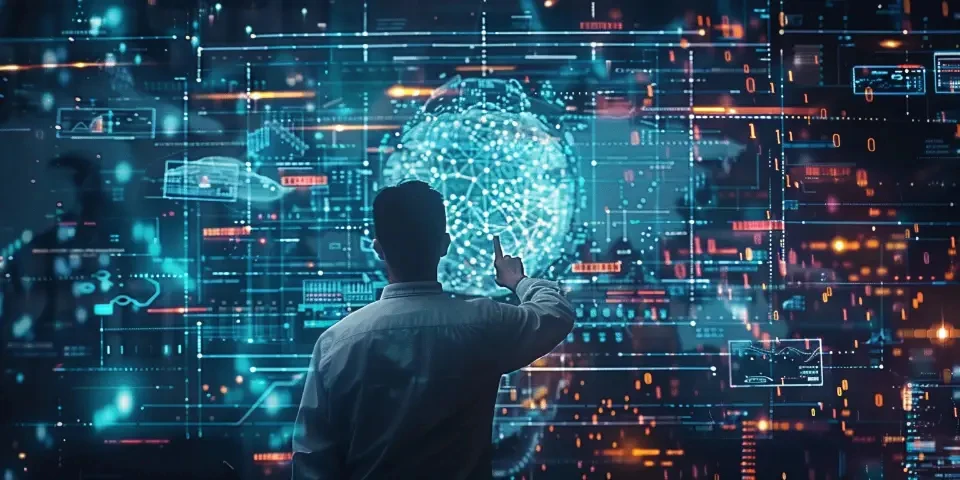How Can AI Improve Customer Service in the Hospitality Industry
The hospitality industry is one that heavily relies on customer service to ensure guest satisfaction and loyalty. With advancements in technology, specifically the rise of artificial intelligence (AI), hotels and other establishments in the hospitality industry have the opportunity to enhance their customer service experience in numerous ways. This article will explore eight key areas where AI can significantly improve customer service in the hospitality industry.
1. Personalized Recommendations and Suggestions
AI algorithms can analyze vast amounts of customer data, including browsing and purchase history, to provide personalized recommendations and suggestions. By understanding each individual guest's preferences and behavior patterns, hotels can offer tailored suggestions for dining options, activities, and local attractions, enhancing the overall experience for their guests.

2. Efficient Check-In and Check-Out Processes
Implementing AI-powered chatbots and virtual assistants at the front desk can streamline the check-in and check-out processes. Guests can receive quick responses to their queries, request additional services, and even complete necessary paperwork without having to wait in line. This not only improves efficiency but also frees up staff to focus on providing exceptional in-person customer service.
3. Concierge Services and Virtual Assistants
AI-powered virtual assistants can act as digital concierges, providing guests with instant assistance and recommendations 24/7. Guests can interact with these virtual assistants through voice commands or text messages to book reservations, request room service, or inquire about hotel amenities. This round-the-clock availability enhances convenience and improves customer satisfaction.
4. Seamless Language Translation
Language barriers can often hinder effective communication between staff and international guests. AI language translation tools, such as Google Translate, can facilitate seamless language translation during interactions. These tools enable real-time translation, allowing staff to understand and respond to guests in their native languages, leading to improved communication and guest satisfaction.
5. Smart Room Automation
AI-powered smart room automation systems can provide guests with control over various room features, including lighting, temperature, and entertainment systems. Virtual assistants integrated into the room can respond to guest commands, making adjustments or providing recommendations based on personalized preferences. This level of customization enhances guest comfort and overall satisfaction.
6. Proactive Problem-solving
AI-enabled systems can detect potential issues within hotel operations before they become significant problems. For example, AI algorithms can analyze data from various sources, such as guest feedback and maintenance records, to identify patterns and predict equipment malfunctions. This proactive approach allows hotels to address issues promptly, minimizing guest inconvenience and improving overall service quality.
7. Enhanced Security and Safety
AI-powered security systems can significantly enhance guest safety within hospitality establishments. Facial recognition technology can be used to authenticate guests and prevent unauthorized access to restricted areas. Additionally, AI algorithms can help detect and alert staff to suspicious activities, minimizing potential security risks and ensuring a secure environment for guests.
8. Sentiment Analysis and Reputation Management
Social media platforms and online review sites play a crucial role in shaping a hotel's reputation. AI-powered sentiment analysis tools can monitor and analyze online reviews and social media mentions to gauge guest satisfaction levels. Hotels can identify areas of improvement, address negative feedback promptly, and celebrate positive experiences, all contributing to better reputation management.
In conclusion, AI offers immense potential for improving customer service in the hospitality industry. From personalized recommendations to enhanced security, AI-powered solutions can streamline operations, increase efficiency, and elevate the overall guest experience. By embracing AI, hotels can stay ahead of the competition and provide exceptional service that keeps guests coming back.
Frequently Asked Questions:
Q: Will AI completely replace human customer service representatives?
A: No, AI is designed to augment and enhance human customer service, not entirely replace it. Human interaction and empathy are still essential for providing a personalized touch and resolving complex issues.
Q: Are AI-powered chatbots reliable?
A: AI-powered chatbots have significantly improved in reliability and effectiveness. However, some complex queries may still require human intervention. The key is to find the right balance between automation and human interaction.
Q: What data does AI use to provide personalized recommendations?
A: AI algorithms analyze various data points, including past purchases, browsing history, demographic information, and preferences indicated by the guest. This data helps AI systems understand individual preferences and make relevant recommendations.
References:
1. Forbes - How AI Is Transforming The Hospitality Industry
2. McKinsey - Seven Ways AI Is Transforming the Hospitality Industry
Explore your companion in WeMate